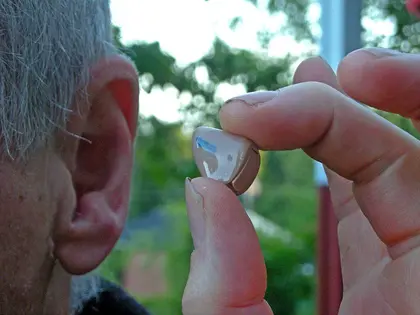Ukrainians have become dizzy in recent days both from the noise of Russian drones and missiles launched at our cities every night and from the clammer of daily news which has baffled even the most experienced political scientists.
There has been no Ukrainian ambassador to the UK for almost eight months. On July 21, 2023, the previous ambassador and former foreign minister Vadym Prystaiko was fired because he dared to gently criticize President Zelensky for undiplomatic language during his state visit to London. Great Britain, however, has remained a reliable partner, providing military assistance in large quantities.
JOIN US ON TELEGRAM
Follow our coverage of the war on the @Kyivpost_official.
Now, at last, an ambassador to the UK has been named – and not just some super-professional, high-ranking diplomat, but a real military general – the best-known general in Ukraine, former commander-in-chief of the Army Valerii Zaluzhny.
President Zelensky's office knows how to surprise. The conflict between the presidential office and General Zaluzhny is over. The General now will serve the State 2,300 km from Kyiv and we can only wonder how easy it will be for him to become an effective diplomat.
What lay behind this appointment? The version most frequently voiced is that this is how Zelensky has decided to get rid of a political rival.
The results of a poll carried out by Socis in February indicated that Zaluzhny has every chance of becoming the new president of Ukraine. According to the poll, in the first round of a presidential election, Zaluzhny would have gained 31 percent of the votes, and in the second round, 67.5 percent.
However, Zaluzhny has not shown any political ambitions and by appointing him to the significant position of Ambassador to the United Kingdom, Zelensky has shown that he trusts Zaluzhny.
Without a doubt, Zaluzhny’s main advantage as an ambassador is that he is personally acquainted with the generals of the British military command and understands very well what kind of help Ukraine requires and in what quantities.
Zaluzhny’s appointment emphasizes that “military diplomacy” is of critical importance to Ukraine. The Foreign Ministry currently has about 20 vacancies for ambassadors, and it is possible that other former military personnel will be called on to fill these positions.
Before Zaluzhny disappears off to London, it is worth reflecting on the extent of the affection shown to him by the Ukrainian people. In this country, mass admiration for high-profile individuals tends to be fickle and often lacks discernment.
Few people now recollect how President Viktor Yushchenko became a national hero in the Orange Revolution of 2004.
Nadezhda Savchenko, a military pilot became the “people's heroine” while in Russian captivity, once back in Ukraine, her popularity took her into parliament, but she soon fell from grace, accused of plotting a coup.
Film director and writer Oleg Sentsov was hailed as a titan for the five years he spent in Russian prisons, but he is rarely remembered now although he is fighting at the front and has already been shell-shocked several times and wounded twice.
The people's love for Zaluzhny has also begun to crack with some, perhaps unintentional, help from the president's office. In order to do things by the book, before being appointed Ambassador to Great Britain, General Zaluzhny had to be discharged from the ranks of the Ukrainian army and made a civilian. This would normally be impossible at a time of massive military threats to national security.
Zaluzhny was demobilized on the basis of a decision of the military medical commission. In other words, he was declared unfit to continue military service on health grounds.
This has outraged many ordinary Ukrainians, who know that the military medical commission often registers people with severe physical disabilities as “fit for military service in wartime.” Was there really no other legal means to convert a soldier into a civilian?
By the way, General Zaluzhny’s closest military comrade, Chief of the General Staff of the Army, Lieutenant General Sergiy Sheptala, was also recently declared unfit to continue military service by the military medical commission. It is not yet known whether Sheptala is also being prepared for a diplomatic position.
Since then, more abrupt and unexplained changes have occurred within Zelensky’s inner circle.
Meanwhile, while the confusing cacophony about internal politics continues, soldiers at the front are facing another sort of deafening sound.
Indeed, one of the combat units recently raised money to buy a hearing aid for their brother-in-arms who was drafted into active service despite having greatly impaired hearing.
The new soldier arrived at the front with his own hearing aid, but in the dugout, it was chewed up by rats. Fellow combatants said that he almost cried when, in the very first days of active service, he found himself without his hearing aid, unable to hear orders or communicate.
His fellow soldiers raised money and purchased a new device for him, but he no longer participates in assault operations and is not sent to the most forward frontline trenches.
Volunteers, by the way, quite often send hearing aids to the front. Soldiers need them after shell shock, as a result of which many soldiers suffer partial hearing loss. Nonetheless, after several days in hospital, they are sent back to the front.
Serving on the front line means surviving up to 140 decibels of gunfire noise as well as explosions reaching 220 decibels. And yet we know that exposure to 200 decibels can be fatal to humans, as can frequent exposure to lower decibel events.
There is obviously a vital need for effective earplugs as well as rat-proof hearing aids at the front line, and perhaps not only there.
You can also highlight the text and press Ctrl + Enter



